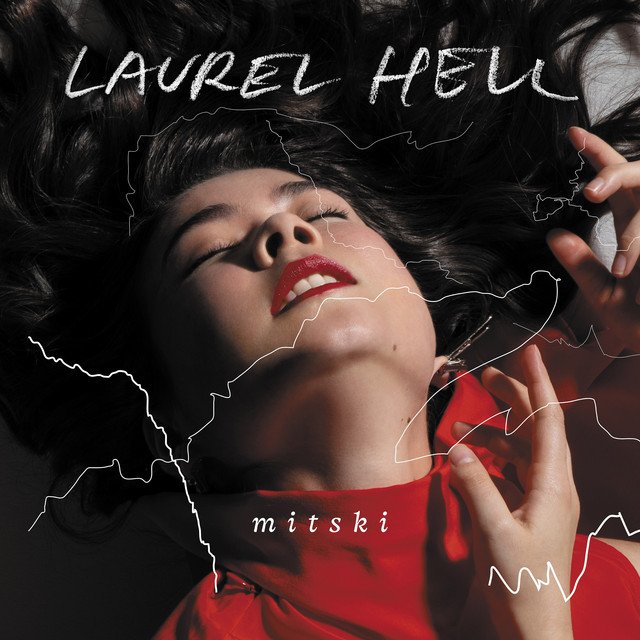Mitski Returns with ‘80s Inspired “Laurel Hell”
By: Stephanie Foster
Mitski Miyawaki released her fifth album Be The Cowboy in 2018 and though it was a rounding success, she found herself facing a predicament: being an artist had taken its toll. That following summer, Mitski announced to a sold-out show in New York City’s Central Park that she would be taking an indefinite break from performing. Her reasoning was that her “self-worth/identity will start to depend too much on staying in the game, in the constant churn” and her social media was deactivated shortly after.
Though she did make an appearance on the soundtrack of “The Turning” (2020) and recorded duets with both Allie X and Lucy Dacus, “Working for the Knife” marked her true return in October 2021. Shortly after the single’s release followed an announcement for her new album Laurel Hell. Mitski clarified in an interview on The Zane Lowe Show the meaning behind the album’s name: “Laurel Hell is a term from the Southern Appalachians in the US, where laurel bushes basically grow in these dense thickets,” she said, “when you get stuck in these thickets, you can’t get out. Or so the story goes.”
“Working for the Knife” is the lead single and features lyrics that are arguably cynical, something very on brand for Mitski. It speaks of her entire life revolving around a knife and opens with the lines “I cry at the start of every movie / I guess ‘cause I wish I was making things too / But I’m working for the knife.” Though her voice is soft throughout the song, it is still expressive as she sings over a synth-heavy instrumental. The song’s narrative reads like someone mourning the loss of their youth and growing up to “work for the knife” while the world moves on. Fans have speculated the knife is a metaphor that represents the pain that may come alongside with making art, though other fans may speculate it can also be a metaphor for working under capitalism. In an interview with Rolling Stone, she revealed the meaning of the song: “It’s about going from being a kid with a dream, to a grown up with a job, and feeling that somewhere along the way you got left behind,” Mitski said.
“Valentine, Texas” is the opening track on Laurel Hell and was named after the small town in Texas. It opens with “Let’s step carefully into the dark / Once we’re in, I’ll remember my way around,” a powerful way to describe her return, perhaps to the music scene. With this as the first lyrics in the entire album, it is like she is prepping the listener for a story. The lines “I’ll show you who my sweetheart’s never met / Wet teeth, shining eyes / Glimmering by a fire” create an almost animalistic visual of Mitski when she shows herself to her partner, possibly her true self. The song then quickly grows and erupts into another synth-heavy explosion, similar to Be The Cowboy’s “Geyser” and how it is as though she is hoping that this sudden change in “perspective” will ease her heavy feelings before she sings of wanting an actual new change in scenery.
Most songs on Laurel Hell have clear inspiration from 80s synth-pop and have a good degree of danceability due to their bouncing beats and tempos. However, the album went through many product versions over three years, which gives it an almost scattered feeling. There are big numbers next to more ambient, dream-like tracks which affect the overall flow. Regardless, Mitski still sings heart wrenchingly beautiful melodies that display her narrative writing.
“That’s Our Lamp” serves as the farewell track of the album and has an almost ABBA-esque disco vibe to it as the song pans out to be a lover’s quarrel. The only thing that guarantees a happy ending is the upbeat mood of the song as Mitski sings “that’s where you loved me” over and over. The more she repeats this line, the more it begins to sound like she is singing “That’s where you left me.”
Overall, Laurel Hell is the album that marks Mitski’s return to music after an almost three year hiatus. There are 11 tracks, though the shorter length of them makes it feel like a smaller album. The eternity of the album is very synth-heavy and there is a recurring theme of uncertainty in many songs and means to leave the listener with questions. The only thing for certain is that Mitski and music are trying to make things work one more time.

